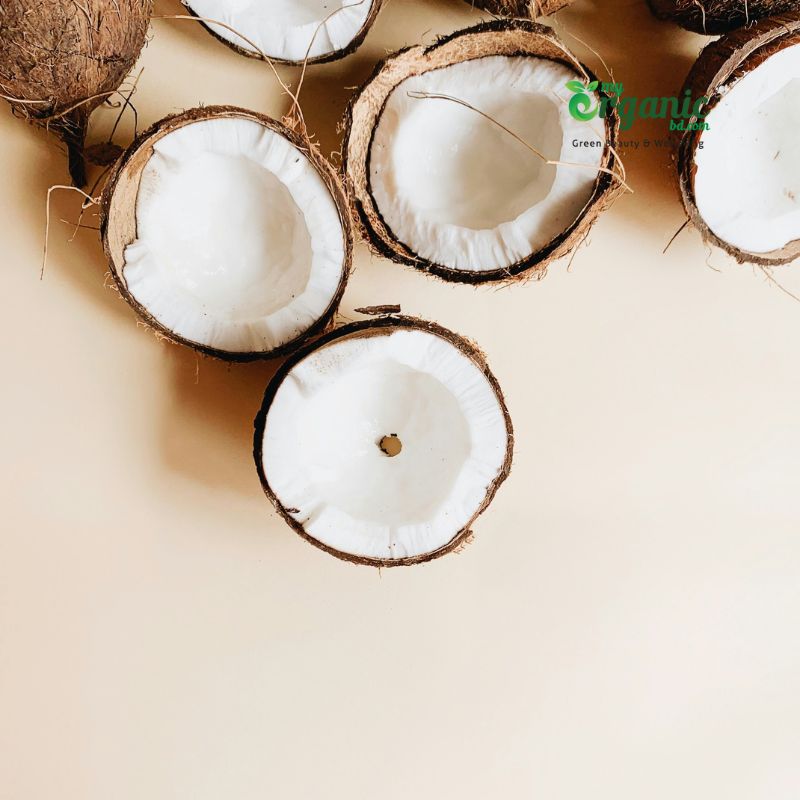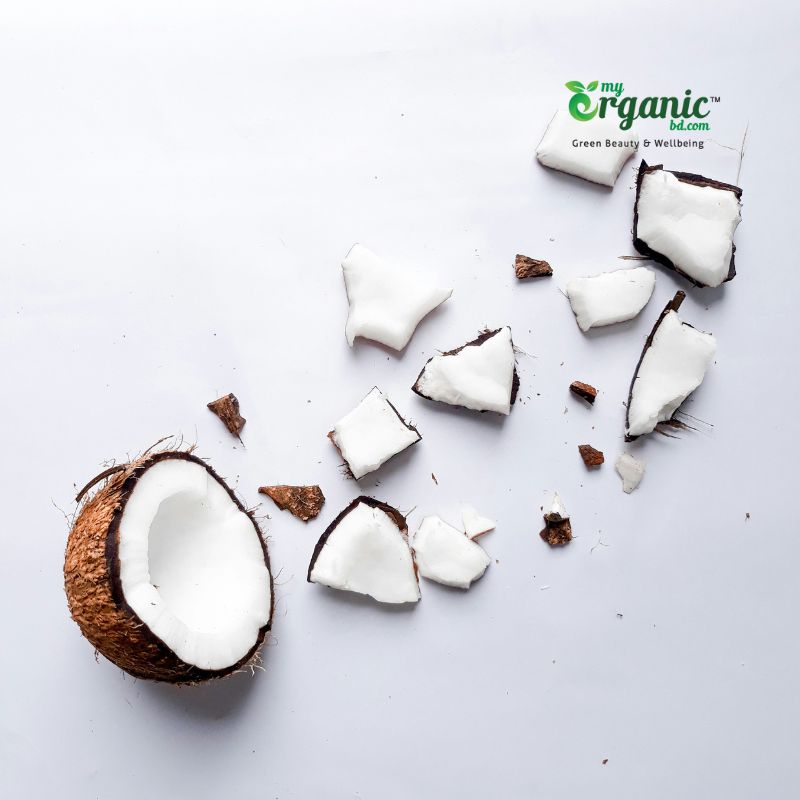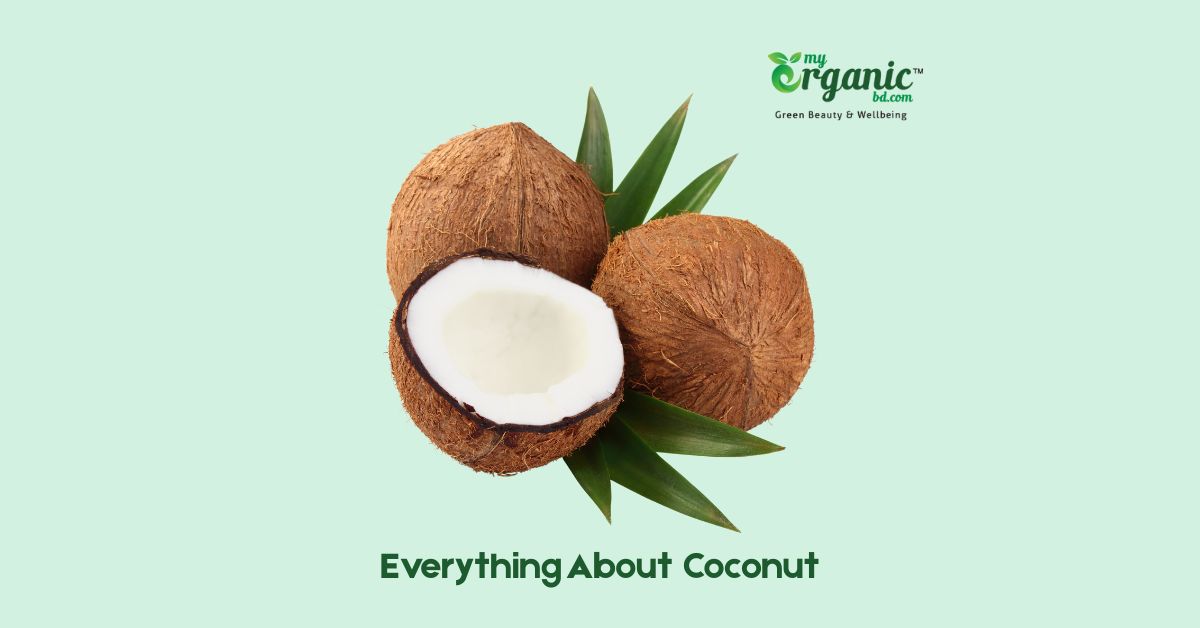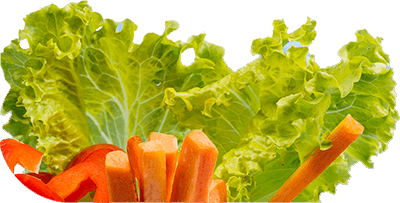Coconut is nature’s all-in-one package for wellness. Health benefits of coconut is make it a valuable addition in our healthy diet. Coconut meat is full of fat, fiber, and nutrients. Coconut water is full of minerals, offering hydration and electrolyte balance. Coconut milk, water, oil, MCT oil, vinegar, and powder all have extraordinary power to enhance our health and lifestyle.
Coconut is not just about food. In this modern era of unsustainable farming, coconut plants are one of the plants that can help us fight environmental issues. No part of the coconut & coconut plants remains unused.
Meet the writers. We are Team My Organic Body & Diet (MyOganicBD). We are a group of nutrition experts, food microbiologists, and organic wellness writers. With our years of experience in the organic food & wellness, we hope to satisfy your curiosity with insightful content.
Primarily, we will discuss the benefits and uses of coconut. This will also include history, considerations, and all the questions people ask about coconuts.
Let’s dive into a detailed discussion about coconuts.
Is Coconut a superfood?
There is no actual standard of superfood. As we are working with extraordinary foods, we had to make a criteria of our own. According to our criteria, coconut, with its several health-boosting abilities, can easily be called as a super fruit. Though it is not always classified as superfood but coconut offers numerous health benefits. Coconut help lose weight, it can prevent premature aging. It also facilitates the immune system and blood sugar regulation.
Coconut and coconut derived products are rich with vital nutrients, minerals, and food values. If you take coconut with proper plan and consistency, it surely helps lead a healthier life. We can say coconut is a healthy nutritious food.

History of Coconuts
Coconuts first appeared in the world in the age of the dinosaurs. It is older than our whole species. However, the domestication of coconuts occurred between 3000 and 1500 BCE by the Austronesian people. Historians suggest coconut was domesticated in two separate locations in the world— the Pacific region and the Indian Ocean region.
Coconuts are a natural plant of coastal regions. Due to the coconut’s floating ability, it easily spreads across the sea. But humans also played a great role in its spreading.
Coconut was mentioned in many historical and ancient texts. Coconuts have a special place in many religions. According to Hindu beliefs, the coconut is the fruit of the gods.
In India, Indonesia, and nearby lands, the coconut was deeply rooted in the culture. It reached America during the Columbian exchange. Some believe coconuts were already in America before Columbus.
Even today, coconuts are one of the main crops in tropical regions of the world. A large number of people are dependent on its economic, nutritional, or other values. It is certainly one of the most valuable plants in the world.
Nutritional Facts About Coconut
In 100 grams of raw coconut meat—
Calories: 354
Protein : 3 grams
Carbs: 15 grams
Fiber: 9 grams
Fat: 33.5 grams
Manganese: 65% of the Daily Value
Copper: 48% of the DV
Selenium: 18% of the DV
Magnesium: 8% of the DV
Phosphorus: 9% of the DV
Iron: 14% of the DV
Potassium: 8% of the DV
From the nutrition chart of the coconut, we can get a good overview of its nutritional benefits.
Coconut has 354 calories, which is quite high. For those who are looking to gain weight, coconut can be helpful. But specialists suggest not to fill more than 8% of daily calories with coconut.
It has a little protein and lots of fat and fiber. The fiber can help digestion in small amounts, but too much of it may cause digestive problems.
Coconut has a small amount of carbohydrates. It can nicely fit into a low-carb diet.
Coconut has several micronutrients essential for a healthy body. It is a great source of manganese, which boosts metabolism and increases bone strength. Copper is essential for immunity and the formation of blood and nerve cells. Selenium is vital for reproductive health. It also works as a powerful antioxidant and helps the thyroid function. Magnesium in coconut benefits heart health and muscle function. Phosphorus works for strong bones and teeth, while iron is an essential element for healthy blood. Last but not least, potassium maintains electrolyte balance, heart and muscle function.

Benefits Of Coconuts
Health Benefits of Coconuts
Let’s discuss the main benefits of coconuts in the following section.
Protects from Premature Aging
Coconuts have some of the strongest antioxidants that protect our cells from oxidative stress, preventing ageing-related issues. Coconut contains Gallic acid, caffeic acid, salicylic acid, and p-coumaric acid. Those are very powerful in fighting harmful free radicals.
Free radicals are molecules that seek electrons for stability. They steal electrons from our cells and damage them. When our cell electron is stolen, it tries to steal another from nearby cells. This is how a large chain of oxidative reactions happens within our cells, damaging millions of cells. Antioxidants just donate electrons and stop the whole cycle. It is not only good for skin health and anti-aging, but also for overall well-being.
Controlling Blood Sugar
Coconut has a higher amount of fat content along with low carb and fiber. This can be beneficial for regulating blood sugar. Coconuts’ high fiber results in slow digestion, which facilitates the slow release of insulin. Different animal and human studies show evidence that backs coconuts’ blood sugar-controlling ability.
Antibacterial property
Coconut has a natural ability to kill bacteria, which may assist the immune system in fighting germs. Different test tube experiments show that adding coconut extract to a bacterial colony inhibits their growth significantly. Its antibacterial property makes it great for the teeth. Chewing coconut can inhibit the growth of harmful bacteria like Streptococcus mutans in our mouth.
May Help Lose Weight
Coconut may have high calories, but it has uses for weight loosing. Coconut meat has a lot of fiber and fat. It also takes a long time to digest. So eating coconut between meals can reduce your appetite and make you feel full for longer. Coconut may not actively help in weight loss, but it can make your journey easier. Note that losing weight requires following a consistent lifestyle and diet. No single food can directly reduce your weight.
Electrolyte balance and blood pressure
Coconuts have a good amount of potassium, magnesium, and copper. Those can balance the body’s electrolyte balance, especially after sport or a workout. Potassium also plays an important role in regulating blood pressure.
Disadvantages of Coconut
Some people may have allergies to coconut. Allergy occurs when our immune cells identify some component of coconut as a threat. This causes immune reactions like skin rash or difficulty breathing when consume a good amount. People with a coconut allergy should avoid it.
Coconut can cause digestive issues like gas, bloating, and diarrhea for different reasons. The high amount of fiber sometimes causes those issues. People with sensitive digestive systems suffer more from those problems.
Coconut also contains a high amount of fat. Our digestive system has to work more to digest fat. It can cause diarrhea and abdominal discomfort in people with weaker digestive systems. For those reasons, it should be consumed in moderation. Coconut also contains fructose, which makes it sweet. It can cause digestive issues for people with fructose intolerance.
Different Healthy Products of Coconut & wellness benefits
There are other coconut products that come with similar or different sets of benefits. Let’s discuss them in the following section.
Coconut water: Coconut water is probably more popular than coconut meat. Culturally, it became a signature element of the seaside. Coconut water is a natural electrolyte drink with a refreshing taste. It’s excellent for rehydrating and electrolyte balance after sports and workouts. It contains a high amount of potassium, which is an essential component for heart health and nerve function.
Want to learn more about coconut water? Read our detailed article, everything you should know about coconut water.

Coconut oil: Coconut oil contains a high amount of heart-friendly medium-chain fat called MCT. Unlike other long-chain fats, MCT oil works differently. Our body directly processes it and uses it for energy, and it does not get stored. This property can be used for weight management. see the science-backed benefits of organic MCT oil, dosage & side effects.
Coconut oil is broken down into ketones, which work as an alternative energy source for the body. Coconut oil is also an excellent antimicrobial. Research shows it can stop the growth of bacteria. It also contains amazing benefits for the skin and hair. It moisturizes skin and hair deeply and protects from various problems such as UV rays, bacteria, dryness, etc. Want to learn more about coconut oil? Read our detailed article, and every question about coconut oil.
Coconut flour: Coconut flour is an alternative to regular flour, especially if you are looking for gluten-free products. Coconut flour has a low carbohydrate content, making it perfect for people who want to consume fewer carbs. It also contains MCT, which can quickly provide energy without giving you sugar spikes. MCT is good for brain health and may contribute to weight loss when used properly. Another signature characteristic of coconut flour is its high fiber content. It helps in digestion and regulating blood sugar.
Want to learn more about coconut flour? Check out All you need to know about coconut flour.
Sprouted ball: Sprouted ball aka coconut apple is formed in sprouted coconut. It is quite different than other coconut products. It is a sweet, healthy, low-fat, and low-calorie food that contains good nutrients like potassium, magnesium, etc. Coconut apple is easily digestible. It is great who are recovering from digestive disease. Coconut apple also contains a good amount of fiber, which improves digestion. The main problem with this product is its availability. But did you know you can make a Sprout ball by leaving a coconut in a wet place for a few weeks?
There may be many other coconut products like coconut sugar, milk for vegan and many more. Almost all products help in our organic wellness. We leave this here to keep the article compact.

Uses of Coconut
Coconut is one of the most versatile foods. It is an essential element of tropical and subtropical cultures and diets. Let’s discuss the main uses of coconut in the following section.
Coconut is usually eaten raw all over the world. It is a special ingredient for many subtropical cultures. It suits equally well in both spicy and sweet foods. Coconut paste adds a small, crunchy texture to soft, sweet foods like cakes, pies, and kheer. Coconut milk is used in soup and meat dishes for a rich and thick gravy texture. Slices of coconuts can also be added to chicken and duck dishes.
Coconut butter is a popular coconut product that is used to be eaten with bread or added to smoothies. There are also many types of processed coconut products, such as coconut candy, dried sweet coconut, coconut bars, etc. Coconut garnish can also be used as a topping for ice cream and desserts.
Taste of Coconut
Coconut has a distinct coconut aroma. It tastes crunchy, sweet, and nutty. The potency of flavor and sweetness depends on different factors like species and cultivation location, etc. Some coconuts can be deliciously sweet, while some have a less sweet taste.
Natural Coconut in the Wellness Industry
In the context of the wellness industry, people do not see coconut differently. People naturally consume it as a part of their daily food, culture. But coconut has great potential in the wellness industry. More likely products derived from coconuts, such as MCT oil or coconut flour, sugar are more likely to become popular for their niche benefits. MCT oil is a quick source of energy and may contribute to fat burn. It also helps improve gut & digestive health. Mct oil and oil related wellness supplement market is growing.
Coconut flour is gluten-free and comes with aids in digestion and blood sugar regulation. Coconut sugar is a natural alternative of refined sugar.
Apart from supplements, People naturally consume coconut, coconut water, and hundreds of dishes made with it.
Future of Coconut in Human Civilization
It is not certain how people will consume coconut in the future. But today it is one of the main crops of tropical areas of the world, and a lot of people are dependent on it. Coconut plants are highly sustainable, as every part of the plant is usable. If the demand for coconut rises for some reason, that may not be as bad as other superfoods for the environment. Also, different parts of coconut plants used as an alternative to plastic and polythene. More likely popularity of coconut will remain the same as regular food, while demand for MCT oil, coconut oil, and coconut flour increase.
FAQ
Here are the answers frequently questions people ask about benefits of coconuts.
Is it good to eat coconut every day?
Yes, you can eat coconuts every day. But keep in mind that coconut contains high fat which may contribute to weight gain. Eating it in moderation should not cause any issues.
When not to eat coconut?
If you have allergies or digestive issues, you should not eat coconut. People who have restrictions on a high-fat diet should avoid coconut.
Is eating coconut good for hair?
Eating coconut can be good for hair indirectly. Coconut contains some of the essential nutrients and antioxidants that can play a role in hair health. If you want direct benefits for your hair, try applying coconut oil.
Is coconut bad for uric acid?
Coconut is not bad for uric acid. People with such problems can consume coconuts safely.
What is the best time to eat coconut?
The best time for eating coconut is in the morning on an empty stomach. Coconut contains lauric acid which can boost the metabolism and lead to a head start in the day.
Does coconut affect sleep?
Coconut may have benefits for sleeping. It does not make you sleepy. However, the magnesium and potassium content of coconut improve the quality of sleep.
Is coconut high in sugar?
Coconut is not a high-sugar food. It is high-fat food. The composition contains 89% fat, and the rest is other things like sugar, fiber, vitamins, etc. Fructose from coconut, in moderation, should not disturb your regular diet.
Conclusion
Coconut is one of the foods that has had a great influence on human culture and civilization. It has been serving us with its amazing wellness benefits and delicacy. We tried to dive deep into its nutritional properties, benefits, and considerations.
We have more stories on different coconut products like coconut oil, MCT, Coconut water, and coconut flour. Keep reading for a organic healthy living.
Mr. Shariful Alam Pavel believes in natural living. To live a healthy conscious living, we need to eat green, live green. MyOrganic Bd is a green wellbeing brand, educating millions to live a better life with mother nature.
- Shariful Alam
- Shariful Alam
- Shariful Alam
- Shariful Alam
- Shariful Alam
- Shariful Alam
- Shariful Alam
- Shariful Alam
- Shariful Alam
- Shariful Alam
- Shariful Alam
- Shariful Alam
- Shariful Alam
- Shariful Alam
- Shariful Alam
- Shariful Alam
- Shariful Alam
- Shariful Alam
- Shariful Alam
- Shariful Alam
- Shariful Alam
- Shariful Alam
- Shariful Alam
- Shariful Alam
- Shariful Alam
- Shariful Alam
- Shariful Alam
- Shariful Alam
- Shariful Alam
- Shariful Alam
- Shariful Alam
- Shariful Alam
- Shariful Alam
- Shariful Alam
- Shariful Alam
- Shariful Alam
- Shariful Alam
- Shariful Alam
- Shariful Alam
- Shariful Alam
- Shariful Alam
- Shariful Alam
- Shariful Alam
- Shariful Alam
- Shariful Alam
- Shariful Alam
- Shariful Alam
- Shariful Alam
- Shariful Alam





